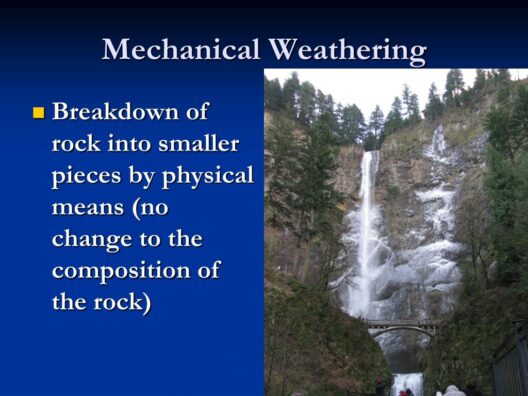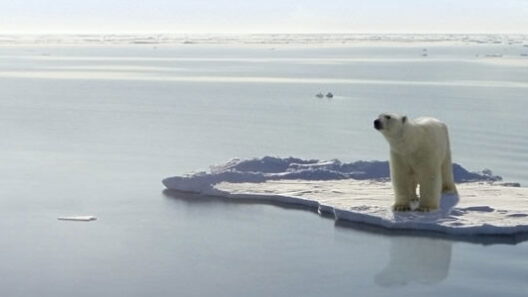In the kaleidoscopic landscape of global climate discourse, Germany emerges as a poignant player, embodying both fervent activism and a complex relationship with the realities of climate change. The question, “Do Germans really believe in global warming?” warrants a nuanced exploration, one that traverses cultural, historical, and ideological terrains. As the proverbial land of poets and thinkers, Germany finds itself at a crossroads, where its deep-rooted environmental ethos meets the inexorable challenge of climate change.
The German approach to environmentalism can be metaphorically likened to a sturdy oak tree, deeply rooted in centuries of philosophical thought and historical reckoning. It has grown amidst the tumult of war, division, and reunification, nourished by a collective memory that respects nature’s fragility. Today, the leaves of this oak are greener than ever, reflecting a societal commitment to sustainability that extends from grassroots movements to governmental policies.
One must delve into the historical backdrop to fully appreciate this commitment. In the wake of industrialization, Germany witnessed profound ecological degradation. The catastrophic consequences of World War II, followed by environmental ruin during the post-war economic miracle, awakened a conscience that could no longer ignore the planet’s plight. The creation of the Green Party in the late 1970s symbolized a decisive break from conventional politics, embracing environmentalism as a legitimate socio-political axis. This party catalyzed widespread dialogue about climate change, contributing significantly to Germany’s current ecological policies.
Fast forward to the present day, and one encounters a society that overwhelmingly supports the concept of global warming. Surveys consistently indicate that a significant majority of Germans recognize anthropogenic climate change as a serious threat. They view it through the lens of both ethical responsibility and pragmatic necessity. The “Energiewende,” or energy transition, embodies this belief, aiming for a substantial reduction in carbon emissions through the adoption of renewable energy sources. Wind turbines dot the landscape, and solar panels adorn rooftops, a testament to a nation in pursuit of an eco-friendly energy paradigm.
However, as with many multifaceted issues, this enthusiasm is tempered by skepticism and discontent. Despite a robust majority believing in climate change, a vocal minority has emerged, disputing the extent of the crisis or the necessity of bold actions. This dissent is not necessarily rooted in ignorance, but rather in a deeper cultural inquiry into the efficacy of current measures. It invokes a familiar resonance with the age-old tension between economic stability and environmental integrity, echoing across generations.
One profound dimension of the German experience with climate change is the notion of “Umweltschutz,” or environmental protection, which transcends mere policy. It is woven into the fabric of daily life—manifesting in recycling practices, conscientious consumption, and advocacy for sustainable agriculture. Attending a local farmer’s market is more than a purchase; it represents a cultural statement underscored by ethical discernment. This daily reaffirmation of commitment reflects an underpinning belief that individual actions, collectively harnessed, can lead to substantial shifts in environmental outcomes.
Moreover, Germany’s educational system integrates environmental studies into curricula, instilling ecological consciousness from an early age. Children grow up learning about the intricate interdependencies of ecosystems, fostering a generation that approaches climate activism not as an obligation, but as a moral compass guiding their interactions with the world. Schools often engage in projects that promote sustainability—transitioning organic waste into compost or cultivating community gardens, illustrating that environmental stewardship is a vital component of civic responsibility.
Despite these commendable strides, the paradoxes persist. Groups apprehensive about the ramifications of the energy transition on jobs and traditional sectors challenge the prevailing narrative. Concerns that a swift transition away from fossil fuels could jeopardize economic stability manifest in anxiety rather than outright denial. This tension is emblematic of a broader narrative in which economic frameworks clash with environmental imperatives, evoking the metaphor of a delicate balance beam swaying between progress and preservation.
Furthermore, the phenomenon of “climate fatigue” cannot be overlooked. As dire forecasts proliferate, individuals can feel overwhelmed, leading to a cycle of despair and disengagement. This paradox presents a pivotal challenge for activists and policymakers. They must cultivate not only awareness but also resilience, encouraging a proactive rather than reactive stance towards climate engagement. A deeper understanding of psychological responses to climate change can aid in crafting messages that inspire optimism and agency rather than helplessness.
In an interconnected world, Germany’s commitment and challenges resonate globally. The historical nuances, cultural convictions, and economic considerations create a unique tapestry that reflects not only national identity but also our collective human experience regarding climate change. As Germany continues to navigate this complex arena, it sets a precedent for climate dialogue internationally, advocating for a balanced approach that respects both the planet and its people.
Ultimately, to ascertain whether Germans truly believe in global warming, one must examine their actions, policies, and the societal ethos that underpins them. This intricate interplay between belief and practice illustrates a society wrestling not just with the threat of climate change, but also with the inherent responsibility residing in the human spirit. In the grand scope of environmental activism, Germany stands as a paradigm, embodying both hope and the relentless pursuit of ecological balance.








